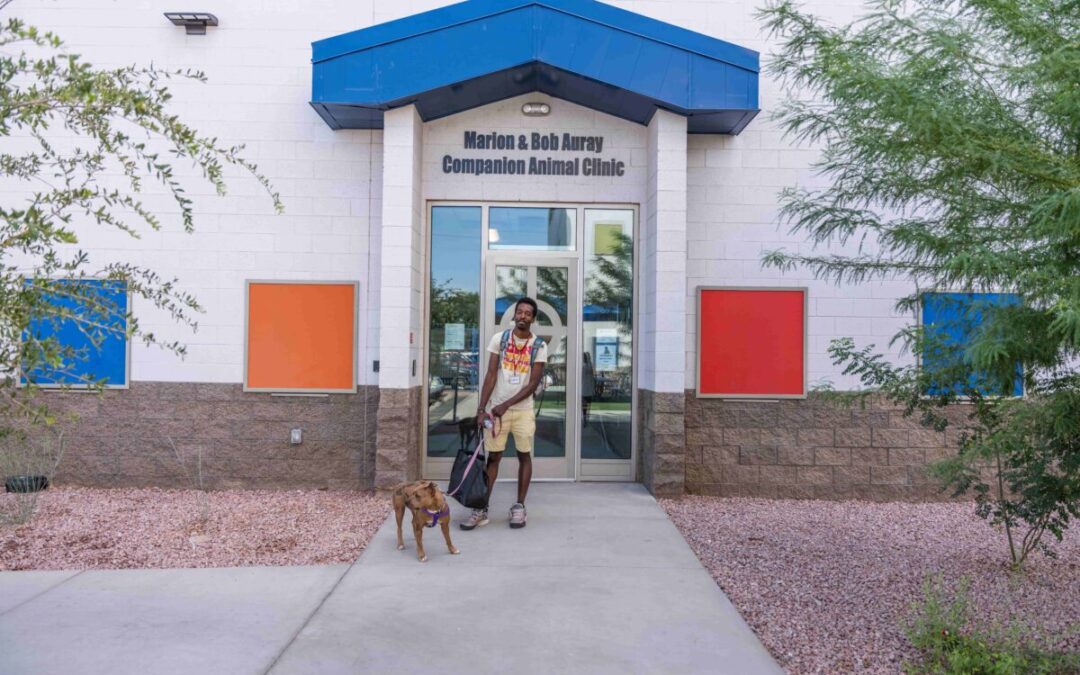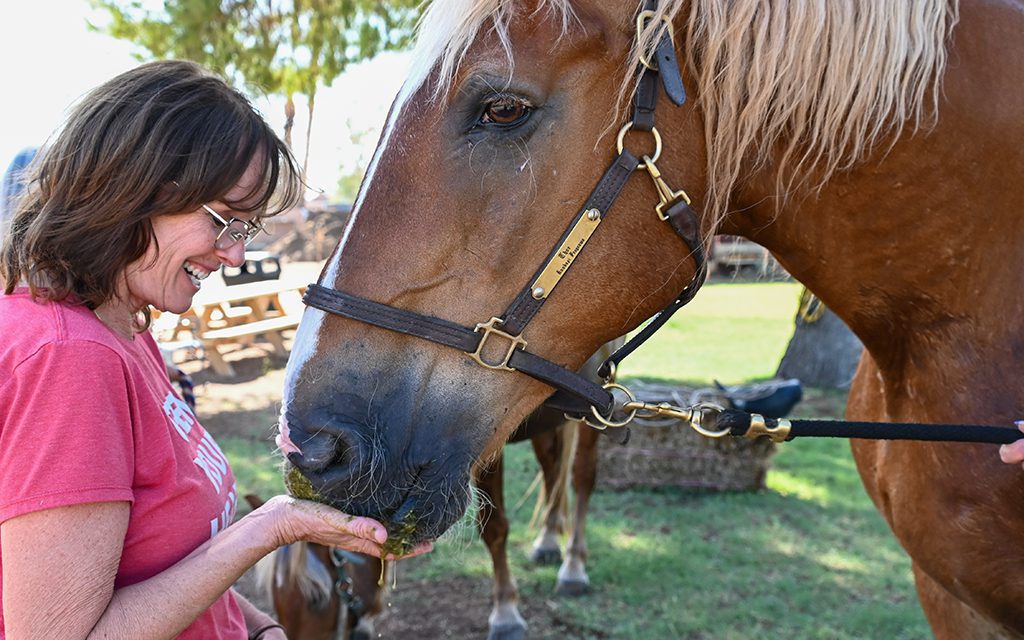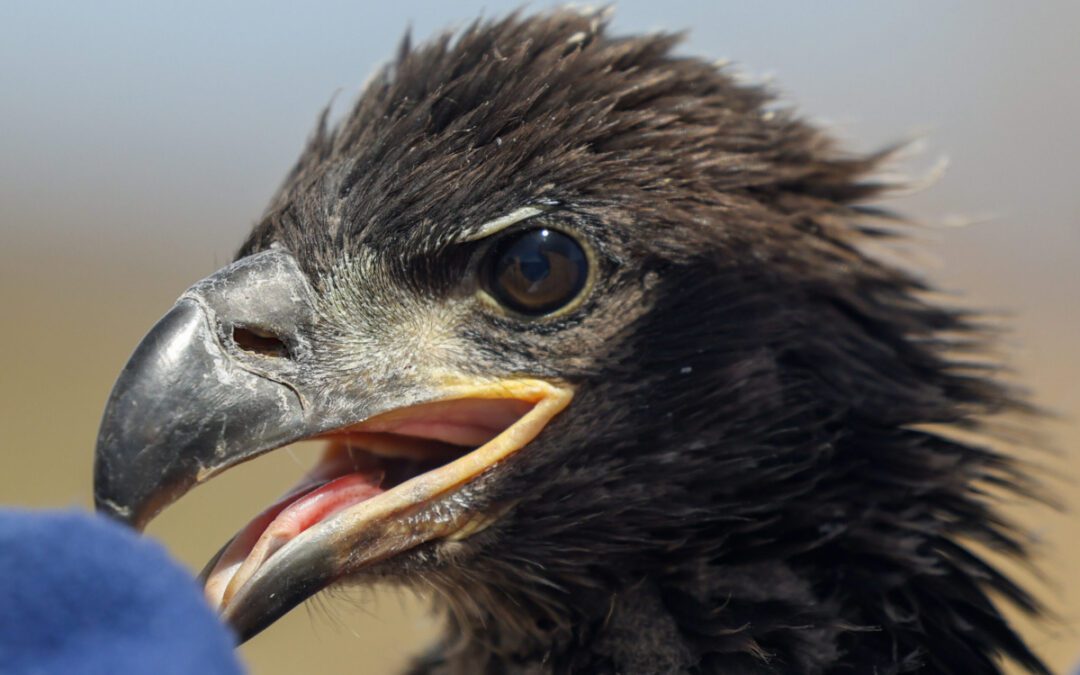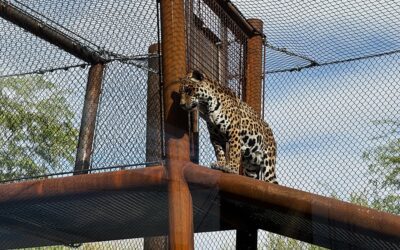
Olya Weekley, Tucson Audubon Society's applied conservation project manager, capping a pipe. (Photo courtesy Tucson Audubon Society)
This story is a contributed piece from David Robinson, director of education and advocacy for Tucson Audubon Society.
Desert Fence Busters (DFB), a unique group of conservation professionals and volunteers, headed out to the desert west of Marana last month to protect Sonoran Desert wildlife by restoring their habitat.
After donning heavy-duty gloves and work boots, they rolled up—or rather, rolled down—their sleeves and set about removing close to three miles of obsolete and unnecessary barbed-wire fencing. Conservationists have long known that such fencing kills wildlife both directly, when wildlife are injured or killed trying to get over, through, or under it, and indirectly, by obstructing “wildlife connectivity,” the ability of wildlife to move freely and safely through the landscapes on which they depend to find food, shelter, and mates.
READ MORE: 8 top spots for birdwatchers in the Arizona fall and winter
Since December 2021, DFB has removed over 40 miles of obsolete barbed-wire fencing, opening thousands of acres for wildlife movement, mostly on lands in the Avra and Altar Valleys. And they’ve done it all by the book.
As Christina McVie, a founding DFB member, explains, “We’re not rogue or vigilante habitat-restorers. We don’t remove perimeter fencing of parcels or jurisdictions, unless specifically directed to do so by the relevant jurisdiction. And we don’t remove wildlife-friendly fencing; on the contrary, we promote upgrading permanent fencing to make it wildlife friendly, as per Arizona Game & Fish guidelines.”
Over the past two years of fence removal, DFB has recycled approximately 40,000 pounds, or 20 tons, of scrap metal. In doing so, they calculate they’ve done a million dollars’ worth of conservation work—all for free!
DFB recently expanded their work to include an additional wildlife-conservation measure: capping “death pipes.” Open-top, vertical pipes—often fence posts—are a near-ubiquitous but little-known cause of human-related wildlife deaths. Small animals such as lizards and birds enter the pipes in search of food, or of roosting and nesting opportunities, but end up trapped. Unable to spread their wings or climb the pipes’ smooth walls, the wild creatures die a slow, terrible death.
Last fall, project leader Olya Weekley taught participants how to cap open pipes. She began by examining 10 open pipes in the work area, feeding a small camera down to the bottom. Each time, the camera revealed several layers of skulls, bones, and feathers. Those gruesome findings added extra urgency to the volunteers’ efforts. Over the course of the past two DFB events, Olya and other participants capped 150 pipes, saving hundreds of animal lives in the future.
Like Desert Fence Busters, Tucson Audubon’s Project Death Pipes exemplifies the broad base of support for protecting Arizona’s wildlife and their habitats, in this case bringing together birdwatchers, wildlife biologists, and hunters. Created with funding from Arizona Sportsmen for Wildlife Conservation, the project educates the public about this deadly threat to wildlife and how to cap and/or report death pipes.
Says Weekley, “Any vertical pipe that doesn’t serve a clear ventilation or irrigation purpose should be closed off. Use rocks or sticks to temporarily cap a discovered fence or gate pipe that’s open. For pipes on your own property, you can buy special caps or fashion a cement cap. Pipes that need to remain open can be screened off with wire mesh or custom screens.”
For more information, including where to report “death pipes” you come across, visit the open pipes page on Tucson Audubon’s website.
For more information about, or to register to join an upcoming DFB event (Feb. 17, March 29, and March 30), click here or contact Scott Sprague, Arizona Game & Fish project manager/road ecologist at [email protected]. To sign up specifically for pipe-capping at a DFB event, contact Olya Weekley at [email protected].
Subscribe to The Copper Courier’s daily newsletter! We keep it 💯—just like the temperature.

We checked out St. Vincent de Paul’s new vet clinic helping pets of unhoused Arizonans
Take a closer look at the brand new St. Vincent de Paul Marion and Bob Auray Companion Animal Hospital in Phoenix, which offers free pet care. In...

Hunkapi Farm therapy horses beat the heat, help riders heal and connect
SCOTTSDALE – In the stalls at Hunkapi Farm, as the brutal sun scorches the surrounding grounds, therapy horses feel the heat. While most of the...

Eek! 8 bugs and arachnids in Arizona that give us the chills
Did you know that the most toxic insect venom can be found in the Grand Canyon State? Arizona is known for having some formidable creatures:...

Protecting the bald eagle: Arizona Game and Fish climbs cliffs to count, band, and measure spring hatchlings
Arizona Game and Fish coordinates a nest watching program to collect data on the local bald eagle population and educate the public on how to...





